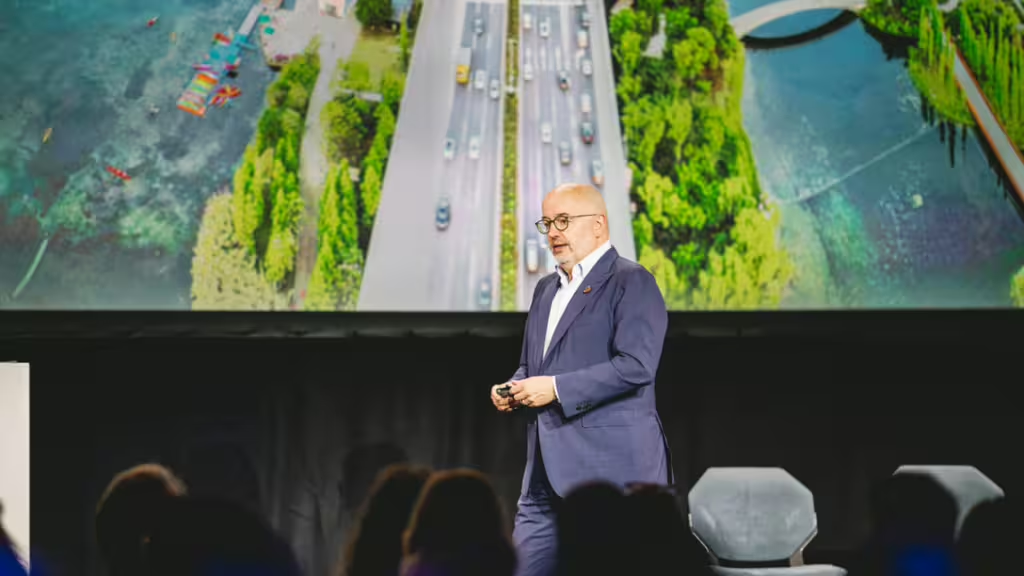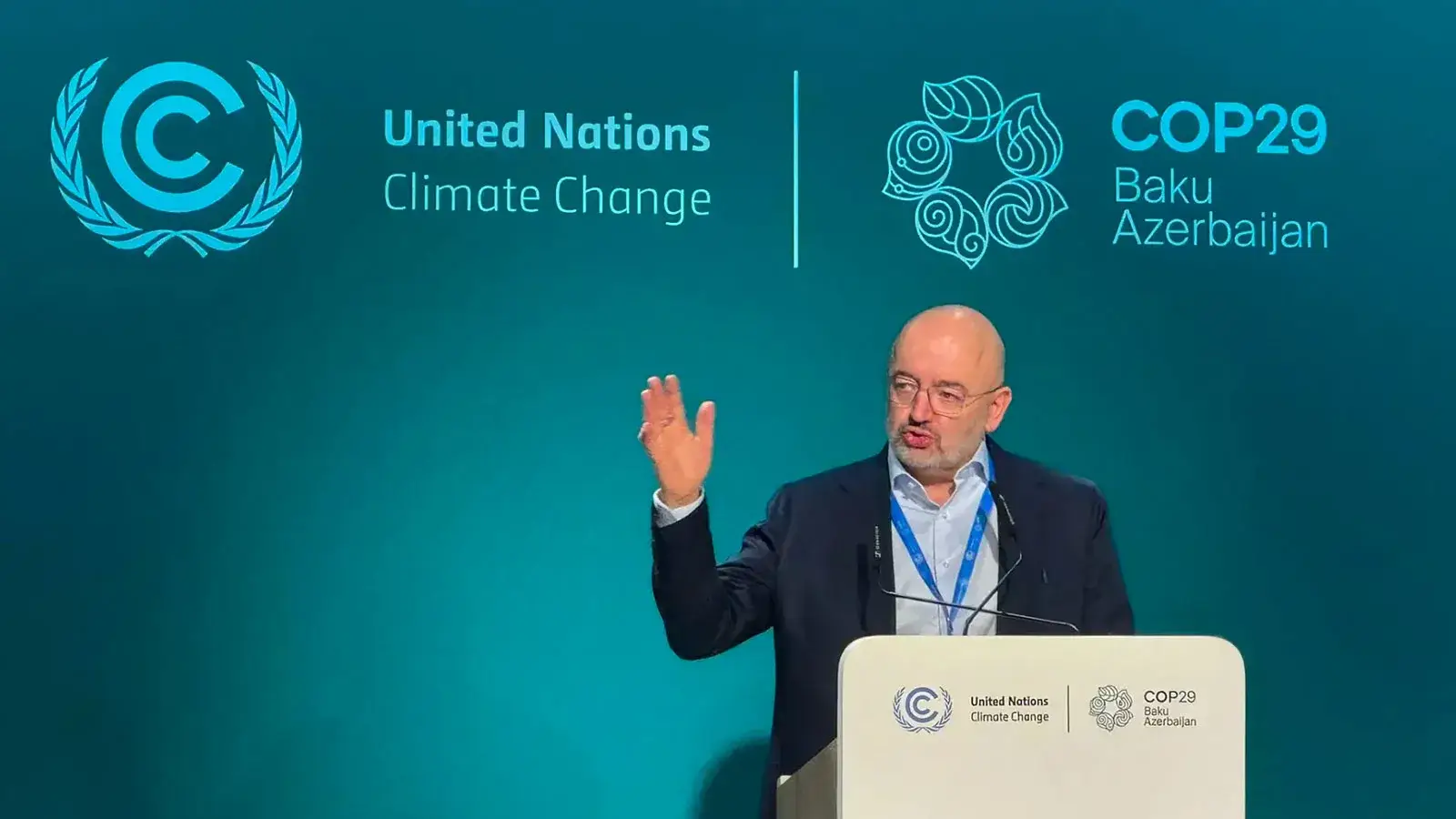The 29th UNFCCC Conference of the Parties (COP29) has concluded. Hosted in the shadow of rising geopolitical tensions, economic uncertainties, and the sobering reality of climate impacts being felt worldwide, COP29 focused on reaching a new finance climate goal, reducing emissions, establishing a global architecture for carbon markets, as well as physical risk and the importance of building resilience. COP29 delivered outcomes but also highlighted the challenges for the multi-lateral approach to make progress, as further illustrated by the failure to reach an agreement in the INC-5 on a Plastic Treaty.
However, after almost three decades of UNFCCC COPs, we are in a situation where 2024 is to be the hottest year on record and the first calendar year to exceed the Paris Agreement threshold of 1.5 degrees Celsius (1.5°C). The global community faces a defining moment. We are at a point where businesses must urgently turn ambition into accelerated action, integrating climate and nature into every part of their strategy and operation. Sustainability hasn’t dropped off the agenda but has become one of the many topics CEOs have to deal with. A growing number of businesses realize sustainability is no longer about setting lofty targets, but about understanding the risks and taking action to make the transition happen in a way that navigates the market conditions with a focus on strengthening the long-term competitiveness and success of the company.
From ambition to accelerated action
For businesses, the COPs are an opportunity to engage with policymakers to shape an enabling environment that allows for scaling climate action. Businesses are no longer passive observers at COPs; they are active participants and in many cases, even critical drivers of change. During UNCBD COP16 and COP29, the voice of business was heard in several high-level dialogues, showcasing how innovation, investment, and collaboration can support global climate goals. A successful example was participating in the Business, Investment, and Philanthropy Climate Platform, where the focus was to emphasize the private sector’s unique responsibility and capacity to embed and scale climate action that could transform business.
For turning ambition into accelerated action, public-private collaboration and enabling policies are key. During COP29, several countries shared updated Nationally Determined Contributions (NDCs) ahead of the February 2025 deadline. These targets are aimed at reducing GHG emissions and include measures countries are taking to adapt to climate change, alongside implementation strategies and timeframes to achieve these goals. Governments will however need to collaborate with the private sector to translate these NDC’s into business action and reach the targets. If the conditions are right, business are more than ready to invest in the transition. Enabling policies and public-private collaboration are key drivers to create investment conditions that allow companies to be part of the solution while at the same time creating a competitive advantage. WBCSD’s recently launched Business Breakthrough Barometer shows 91% of executives view the transition as an opportunity, with 74% reporting increased investments in the net zero transition over the past three years. 90% of leading businesses would invest more if governments implement policies that tackle sector-specific barriers.
Integrating climate and nature
COP29 historically has always received more attention than the other two COPs. Increasingly though, the UNCBD COP (biodiversity), the largest conference on nature protection to date, and the UNCCD COP (desertification) are getting more traction as well – and rightfully so. The call for one unified COP is getting louder and one we fully support. Addressing climate and nature in silos undermines our ability to tackle the interconnected challenges of our time. Climate change drives loss of biodiversity and nature, while the degradation of ecosystems accelerates carbon emissions and reduces nature’s capacity to act as a buffer against extreme weather.
For businesses, this interconnectedness means that strategies that integrate ecosystem health and just transition into their emission reduction strategies will reap more resilient and successful results.
Looking ahead to COP30
As we look to COP30, dubbed the ‘turnaround COP’ by Brazil’s President Luiz Inacio Lula da Silva, the conference will be a pivotal moment in translating the commitments made at previous COPs into tangible actions at scale that deliver measurable impact. While COP29 laid important groundwork for progress, the true test lies in implementation. Expectations are high for actionable outcomes, and through our collaboration with CEBDS, our WBCSD community will have the opportunity to drive scalable business action.
So despite the lack of progress in COPs this year, I urge you not to give up on the process. The Brazilian government is ambitious to make COP30 a success and through the COP30 CEO Advisory Board and collaboration with CEBDS, you will have direct access to be part of it.
At the same time, we shouldn’t wait, however, for the COPs to be integrated, nor wait for perfect (inter)national agreements and outcomes at COP30. Regardless, business has the responsibility, need and capacity to lead the transition. Moreover, we don’t have the luxury to await the increasing impact of physical risk posed by climate-related disasters. Those that innovate, adapt, and act decisively will experience how sustainability performance is the driver for competitiveness – strengthening the long-term success of the company. Their business will not only survive but thrive in a climate-conscious world.
Outline
Related
Content

China’s Green Stride Forward: Accelerating Industrial Sustainable Transformation
10 June, 2024

Driving Solutions at Scale: Reflections from Peter Bakker on WBCSD’s 29th Liaison Delegate Meeting
2 May, 2024

WBCSD President and CEO, Peter Bakker Recognized Among TIME Magazine’s Top 100 Climate Leaders in Business for 2023
16 November, 2023

